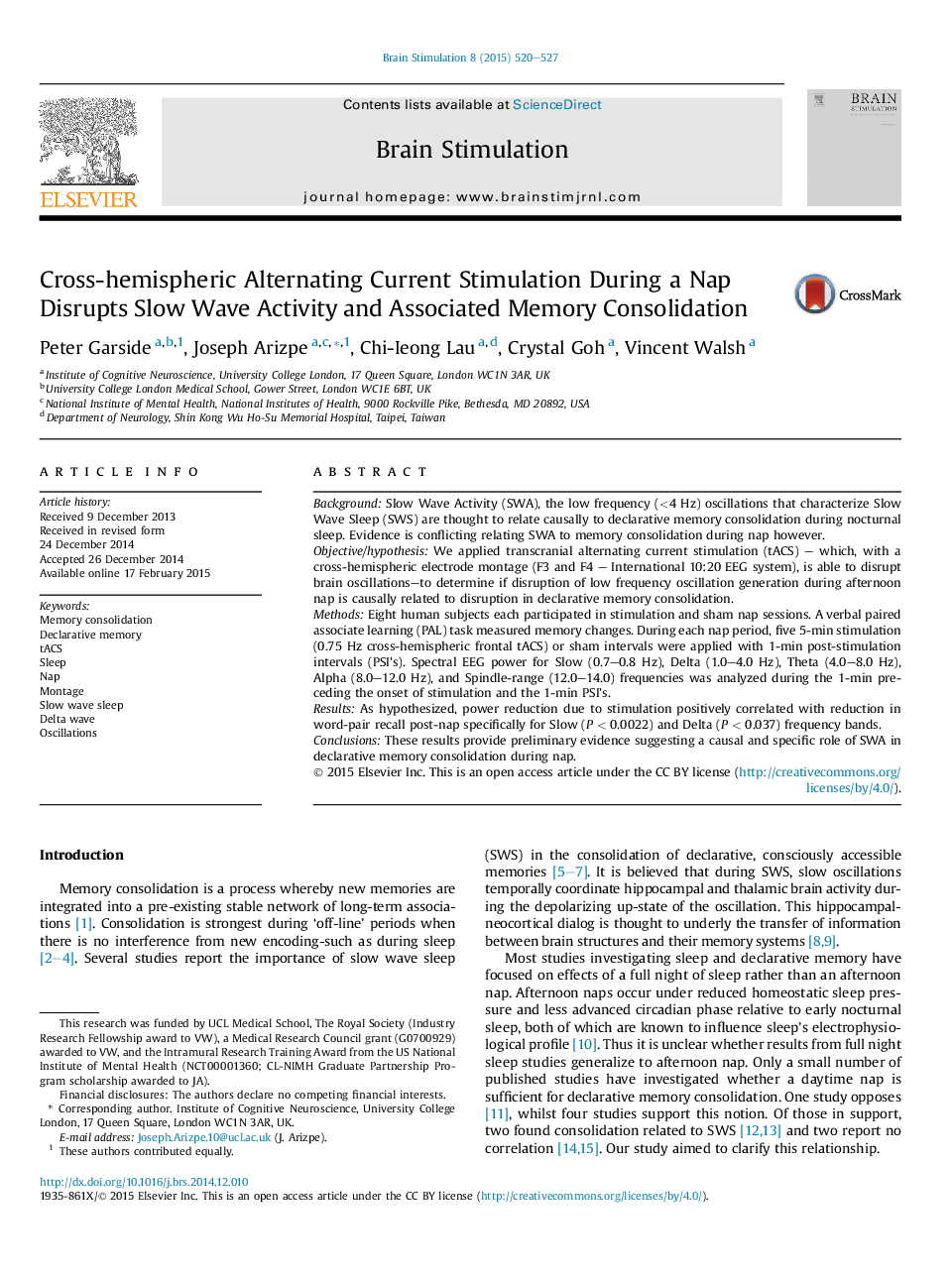| Article ID | Journal | Published Year | Pages | File Type |
|---|---|---|---|---|
| 6005300 | Brain Stimulation | 2015 | 8 Pages |
â¢Cross-hemispheric tACS disrupted low frequency oscillation generation in afternoon nap.â¢Oscillation disruption correlated with declarative memory consolidation disruption.â¢Absent stimulation, low frequency oscillations also correlated with consolidation.â¢A rebound in low frequency oscillations was observed after 29 min of stimulation.â¢A causal role of low frequency oscillations in consolidation during nap is suggested.
BackgroundSlow Wave Activity (SWA), the low frequency (<4Â Hz) oscillations that characterize Slow Wave Sleep (SWS) are thought to relate causally to declarative memory consolidation during nocturnal sleep. Evidence is conflicting relating SWA to memory consolidation during nap however.Objective/hypothesisWe applied transcranial alternating current stimulation (tACS) - which, with a cross-hemispheric electrode montage (F3 and F4 - International 10:20 EEG system), is able to disrupt brain oscillations-to determine if disruption of low frequency oscillation generation during afternoon nap is causally related to disruption in declarative memory consolidation.MethodsEight human subjects each participated in stimulation and sham nap sessions. A verbal paired associate learning (PAL) task measured memory changes. During each nap period, five 5-min stimulation (0.75Â Hz cross-hemispheric frontal tACS) or sham intervals were applied with 1-min post-stimulation intervals (PSI's). Spectral EEG power for Slow (0.7-0.8Â Hz), Delta (1.0-4.0Â Hz), Theta (4.0-8.0Â Hz), Alpha (8.0-12.0Â Hz), and Spindle-range (12.0-14.0) frequencies was analyzed during the 1-min preceding the onset of stimulation and the 1-min PSI's.ResultsAs hypothesized, power reduction due to stimulation positively correlated with reduction in word-pair recall post-nap specifically for Slow (PÂ <Â 0.0022) and Delta (PÂ <Â 0.037) frequency bands.ConclusionsThese results provide preliminary evidence suggesting a causal and specific role of SWA in declarative memory consolidation during nap.
